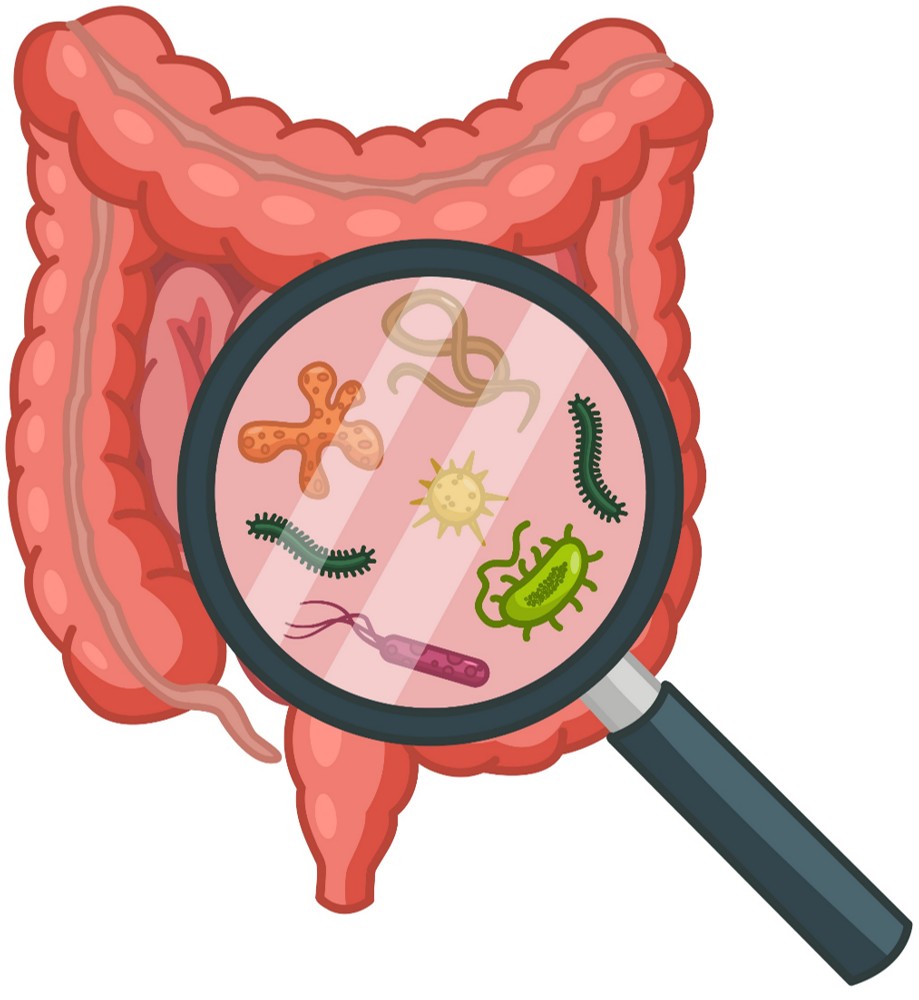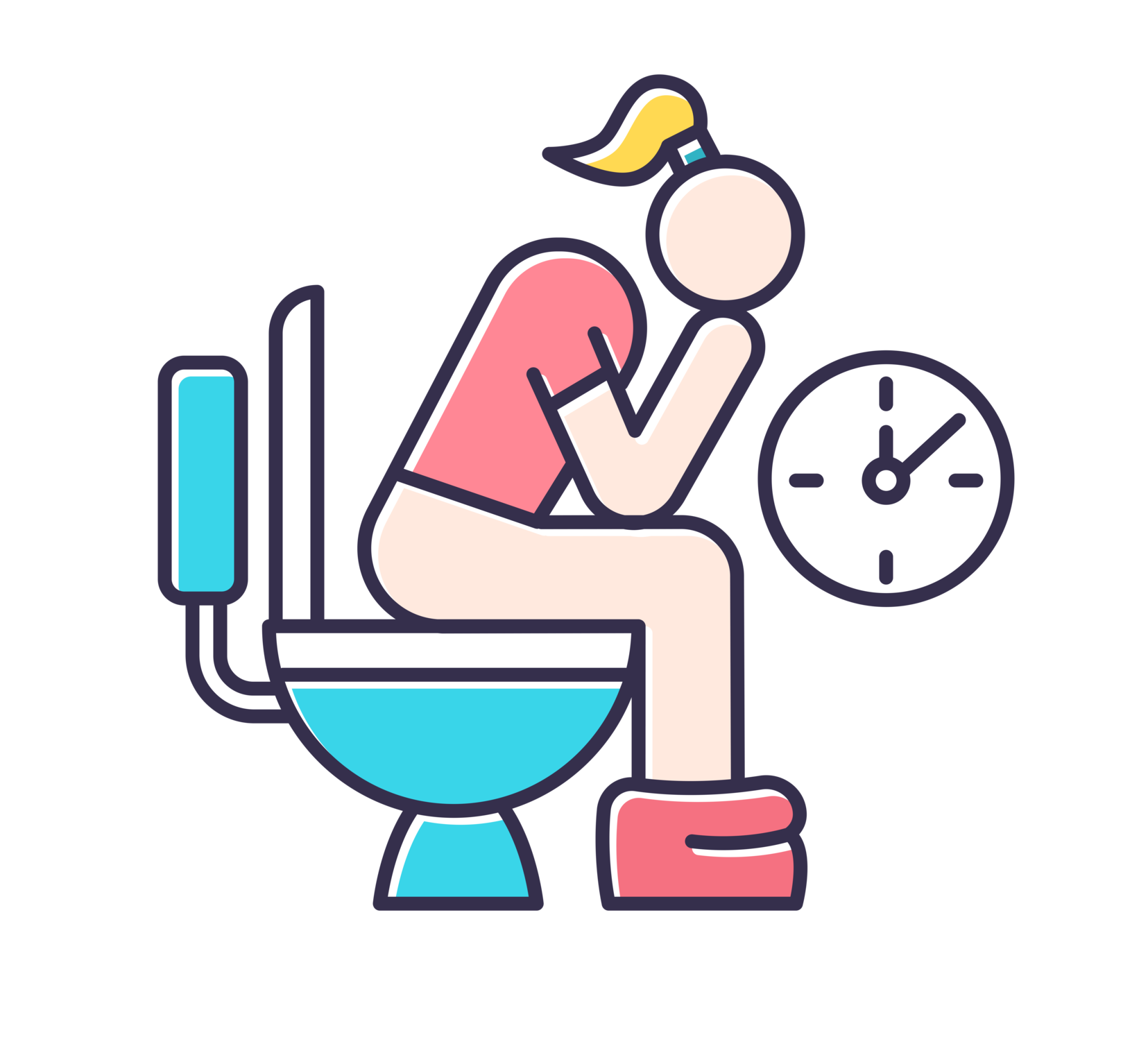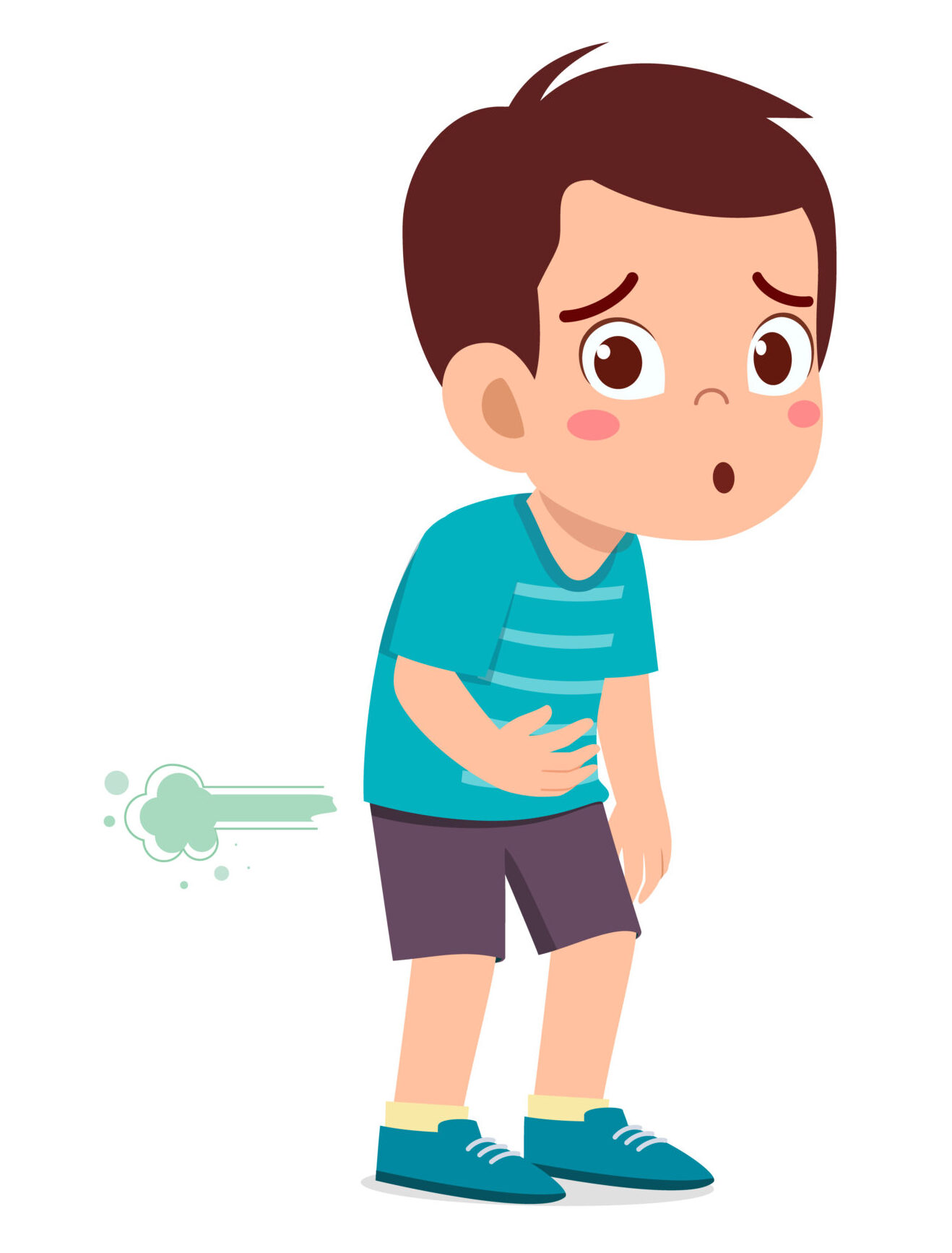
“What’s wrong with fart too much?”
“What problem if the fart is too smelly and too loud?”
“Is it better to fart or not to fart?”
How much do you know about farts matter ?
Where did our farts come from?
Fart is a normal physiological phenomenon for humans.

There are two main sources of fart. One is the external air inhaled through the mouth, such as the air that enters the gastrointestinal tract through the mouth when eating, drinking, and breathing; while the other is gas produced by the fermentation of food residues in the large intestine and rectum.

The air we inhaled and the gases produced in the body follow the peristalsis of the intestines are expelled through the anus and forming farts. When it is discharged, due to the action of the anal sphincter, there will sometimes be a sound, commonly known as “loud fart”.
The main components of farts are nitrogen, hydrogen, carbon dioxide, and oxygen; the odor of fart is mainly caused by sulfide and methane. Generally, average of a healthy individual farts about 14 times a day.
Fart too much
Sometimes you fart too much because:
- Eat too many of starchy foods: such as sweet potatoes, potatoes and taro. The sugar of them decomposes to produce gas, the cellulose accumulates to produce gas, and some have an oxidase that easily produces carbon dioxide.

- People who eat too much soy foods such as tofu and dried tofu: Because the “soybean oligosaccharides” in these foods cannot be broken down by enzymes, they can only be broken down by the intestinal bacteria to produce gas.

- People who eat too fast or like to eat chewing gum and drink carbonated drinks: This is because this can easily allow a large amount of air to enter the gastrointestinal tract.

- Endocrine changes: For women who are in menopause or who have endocrine imbalances, the movement of the gastrointestinal tract will also reduce, which can easily lead to gas expelled increase.

You need to pay attention to the following situations:
A moderate amount of farting is a normal physiological condition, but if amount of farting suddenly increases within a certain period of time, it may be a problem with the digestive system, such as chronic gastritis, early stage of gastric cancer, infection of hepatitis, early stage of cirrhosis, liver cancer, gallstones, and pancreatic disease, chronic enteritis, colon cancer and intestinal tuberculosis. These diseases may initially manifest as indigestion symptoms such as excessive fart, bloating, and borborygmus, which should be taken seriously.
In addition, constipation causes the time of feces retained in the intestines longer lead to the gas-producing bacteria continue to breed in the intestines and excessive farts may also occur.

What is our farts smell?
The gases produced in the intestines are mainly hydrogen, carbon dioxide and methane. These gases are odorless, so most of the time of our farts actually have no smell at all.
A loud fart not smelly, a smelly fart doesn’t make a sound, is that true?
I believe everyone has heard this statement, and it has been verified in our life. There is indeed no smell when farting loudly. Why is this occurred?
This is because the components of these two farts are different. The components of loud fart are mostly containing carbon dioxide in large quantities, which pass quickly in the intestines. There is fewer component that can emit unpleasant odors, such as hydrogen sulfide, so there will not be produced a smelly fart.
However, because it is produced quickly and in large quantities, so it will suddenly pass through the anus and make a loud sound when it is expelled.
On the contrary, smelly farts are gases that pass through slowly in the intestines. The slower the gas passes through, the more unpleasant substances it carries.
Due to there is less of gas, so there will be no obvious movement when it passes through the anus.

But there are still some people whose farts are not only smelly but also loud. Why is this occurred?
This situation often occurs in people who consume large amounts of meat, eggs, milk, and fried products. These foods are relatively difficult to digest and stay in the intestines for a long time, thereby producing large amounts of hydrogen sulfide and skatole make the farts very smelly.
However, when you eat a lot of gas-producing food and breathe in a lot of air, you will also easily to produce smelly and loud farts.
Farts smelly
If your farts are smelly or smell like rotten eggs, this is because eating too much of protein foods (such as meat) has caused food retention in the intestines. After being decomposed in the digestive tract, amines are produced which have this rotten egg smell.
As long as you reduce your food intake especially of protein foods, you can solve this “smelly fart” problem.

You should pay attention to the following situations. If fishy-smelling farts and the following symptoms appear:
- Change in bowel habits
- Changes in stool (thinner stool, bloody stool, mucus stool)
- Bloating, stomach ache or discomfort
- Abdominal mass
- Anemia, weight loss, fatigue
It may indicate that there is a disease in the intestines. The disease will cause the farts mixed with a bloody and fishy smell. It is best to go to the hospital for a checkup!
Do not fart
Some friends may hold back their farts, but where the farts they hold to go?

It will be reabsorbed into the blood through the intestinal mucosa, reach to the liver and filtered by the liver, then reach to the lungs and exhaled out of the body when breathing.
In other words, farts that are held back will eventually come out from the mouth and nose. So, the burps you burped may be the farts you did not pass! This is why some people’s burps so smelly.

In addition, when holding back farts, the anus will bear a lot of pressure, which is not conducive to the anus and can easily lead to hemorrhoids and other diseases. Frequent holding the farts can also easily lead to the accumulation of a large amount of gas in the body which will affect intestinal function and cause symptoms such as bloating, abdominal pain, and chest tightness. Therefore, there is some truth to the saying “if you have fart, let it go”.
You also need to pay attention, if you do not fart all day:
Newborns who do not fart:
This may indicate an underdeveloped digestive system, such as Hirschsprung disease, imperforate anus or anorectal malformations.
If an adult does not fart but has symptoms such as abdominal distension, abdominal pain, abdominal mass, and vomiting: it is necessary to consider whether there is an anorectal problem, such as inflammation, tumor, constipation, hemorrhoids. An anal intubation is required to exhaust air if necessary.

Summary:
Farting is a manifestation of the normal functioning of the intestines. However, if you realize that your farts are abnormally smelly after excluding physiological, food and other factors, you should be alert because it may be a sign of disease.
References
National Health Commission of the People’s Republic of China. Chinese Protocol for Diagnosis and Treatment of Colorectal Cancer (2020 Edition) [J]. Chinese Journal of Surgery, 2020, 58(8): 25. DOI: 10.3760/cma.j.cn112139-20200518-00390.
2. Yang Yaqin. Farting and Defecation: Insights into Cancer Signals [J]. Medicine and Health Care, 2012(4): 2. DOI: CNKI:SUN:TAKE.0.2012-04-037.
此文章还有以下语言版本:
![]() 简体中文 (Chinese (Simplified))
简体中文 (Chinese (Simplified)) ![]() Melayu (Malay)
Melayu (Malay)



